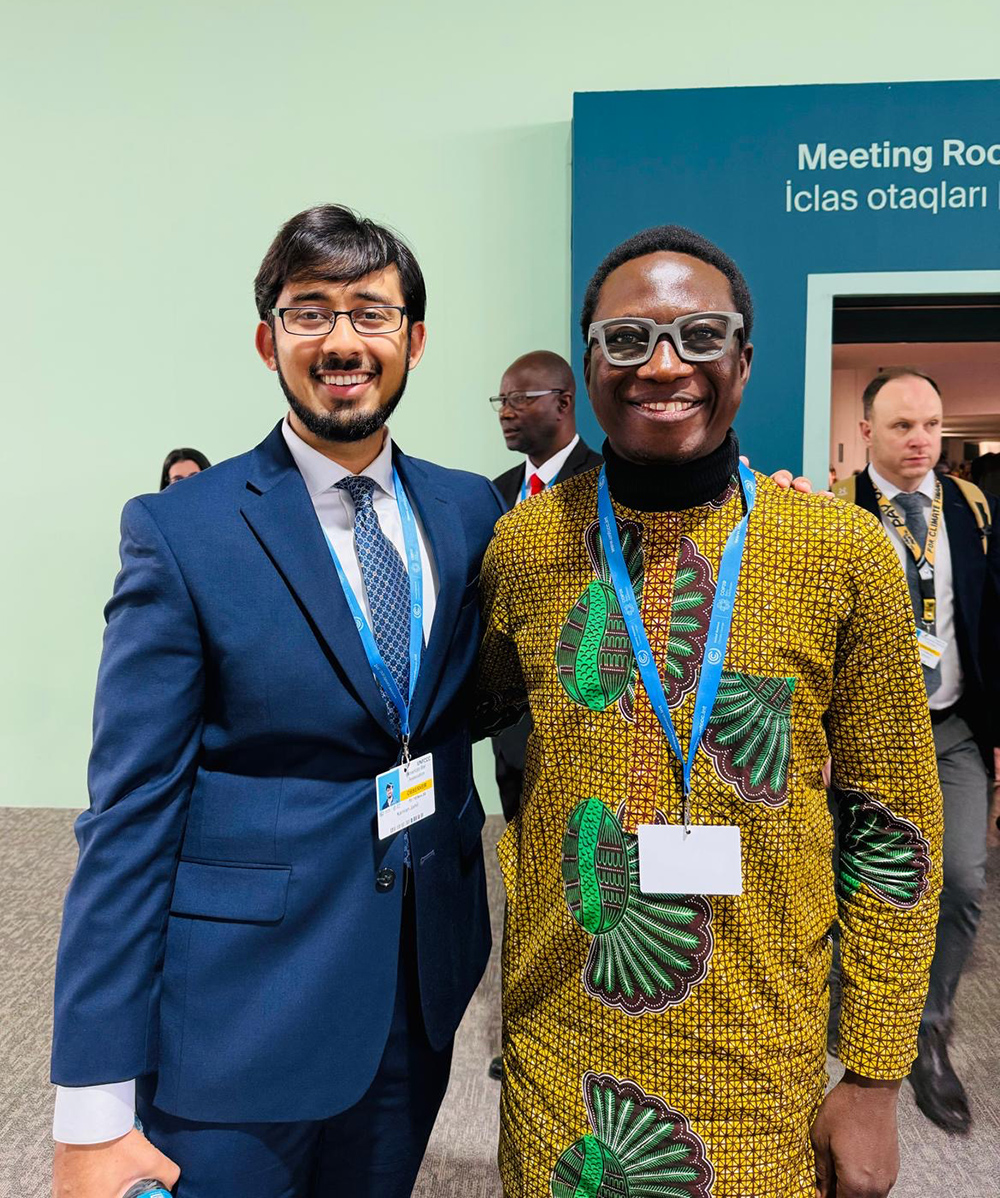
By Andrew Cohen
It doesn’t take long for recent UC Berkeley Law grads to climb the ranks and make a meaningful impact early in their wide-ranging careers. We periodically highlight standout alums who are shining across various practice areas in profiles that amplify what drew them to their current work, what they enjoy most about it, and their path to success.
Unlike most UC Berkeley Law students, Kamran Jamil ’23 first experienced the school as an instructor. While a policy aide in the office of California Attorney General Xavier Becerra, he became a teaching assistant when his supervisor began teaching a seminar course on environmental justice.
While Jamil enjoyed helping teach the class, he enjoyed what he learned even more.
“I knew I wanted to go to Berkeley Law,” he says. “The discussions were engaging, and everyone in the room was focused on how legal tools may be used to lessen the burdens of pollution that many communities in California face. It made me think hard about the law, about the role of advocates as vessels for truth, and the way law can help improve the condition of humanity over time.”

With each Thursday trip from Sacramento to the classroom, Jamil gained more enthusiasm for his upcoming pivot to law school. Once enrolled, he delved into international law courses and seminars held by the Human Rights Center, served as managing editor of the California Law Review, and got involved with the California Asylum Refugee Clinic.
Last year, when an American Bar Association (ABA) e-newsletter noted a few delegate openings to represent the organization at the United Nations Climate Summit in Azerbaijan, Jamil jumped at the chance. His time working with Becerra’s environmental team, experience clerking for U.S. Sen. Alex Padilla, and strong interest in international law led to interviews — and eventually his selection.
“Climate change is an issue that may have its largest impacts on younger generations,” Jamil says. “I believe the ABA and many other organizations, including the U.N. itself, are actively seeking to support the next generation of advocates, leaders, and researchers to make a positive difference.”
Diving in
The U.N. Climate Summit — the only multilateral decision-making forum on climate change that includes almost every country — ran from Nov. 11-22 last year. It marked the continuation of annual global climate treaty negotiations, setting out the commitments and obligations of nation-state signatories to respond to climate change.

The ABA delegation included Jamil, University of Georgia Assistant Law Professor Adam Orford, and University of Kansas Law Professor Uma Outka. Observing high-level discussions, they met with members of similarly-situated bar organizations from other countries to understand the implications of new agreements and commitments within the international climate framework.
“These included the deliberations by countries on implementation of the Paris Agreement’s carbon market,” Jamil explains. “We observed countries as they discussed and agreed to a common set of definitions and parameters for the market to go into effect.”
Now vice chair of the ABA Young Lawyers Division’s International Law Committee, Jamil relished meeting other young attorneys representing their countries or environmental organizations from across the world and became friends with peers from Gambia, Iceland, and Mongolia.
“The level of global interest, and the level of agreement in broad strokes by the vast majority of countries on the importance of implementing solutions to help prevent the further degradation of our environment and climate, was really inspiring to see,” he says. “While countries differed on their political or economic willpower to offer and implement solutions, the summit demonstrated that a global consensus still exists, which is very important.”
Bringing a service mindset back home
Seeing dedicated young people working on vital climate issues from numerous angles and sectors made Jamil realize he wanted to participate in public service in the U.S. While still at the summit, he applied to his current federal clerkship with Judge John Houston in the Southern District of California.
“I love the ability we have to review briefings from both sides of an issue or dispute, and to help clarify what the law is,” Jamil says. “Judge Houston is a remarkable role model because he treats every party, regardless of whether they are represented or proceeding pro se, and across civil and criminal matters, with a degree of dignity that is inspiring.

“It has also been incredibly inspiring to be a part of the federal judiciary at the current moment in time. As the third branch of government, the judiciary doesn’t have the funds or enforcement capacity that Congress or the executive branch wield. But the judiciary does have something very special: the opportunity and duty to carefully, and often quietly, study the law and determine its meaning and effect. The idea that decisions can be reached by reason instead of power makes our system of government admirable, and perhaps also fragile.”
Jamil’s leadership bent emerged early. As a high school junior in San Diego, he launched a human rights week to put on programming that helped students understand key issues in various parts of the world — including their home city. The following year he founded Globe magazine, which focused on foreign relations, student essays, and art and literature with a connection to the broader world.
“There is completely a line one can draw from my time on Globe and with the human rights week to the opportunity I had at the U.N. Climate Summit in Azerbaijan,” Jamil says. “I think my love for making friends and being in conversation with people from different backgrounds is a big part of it.”